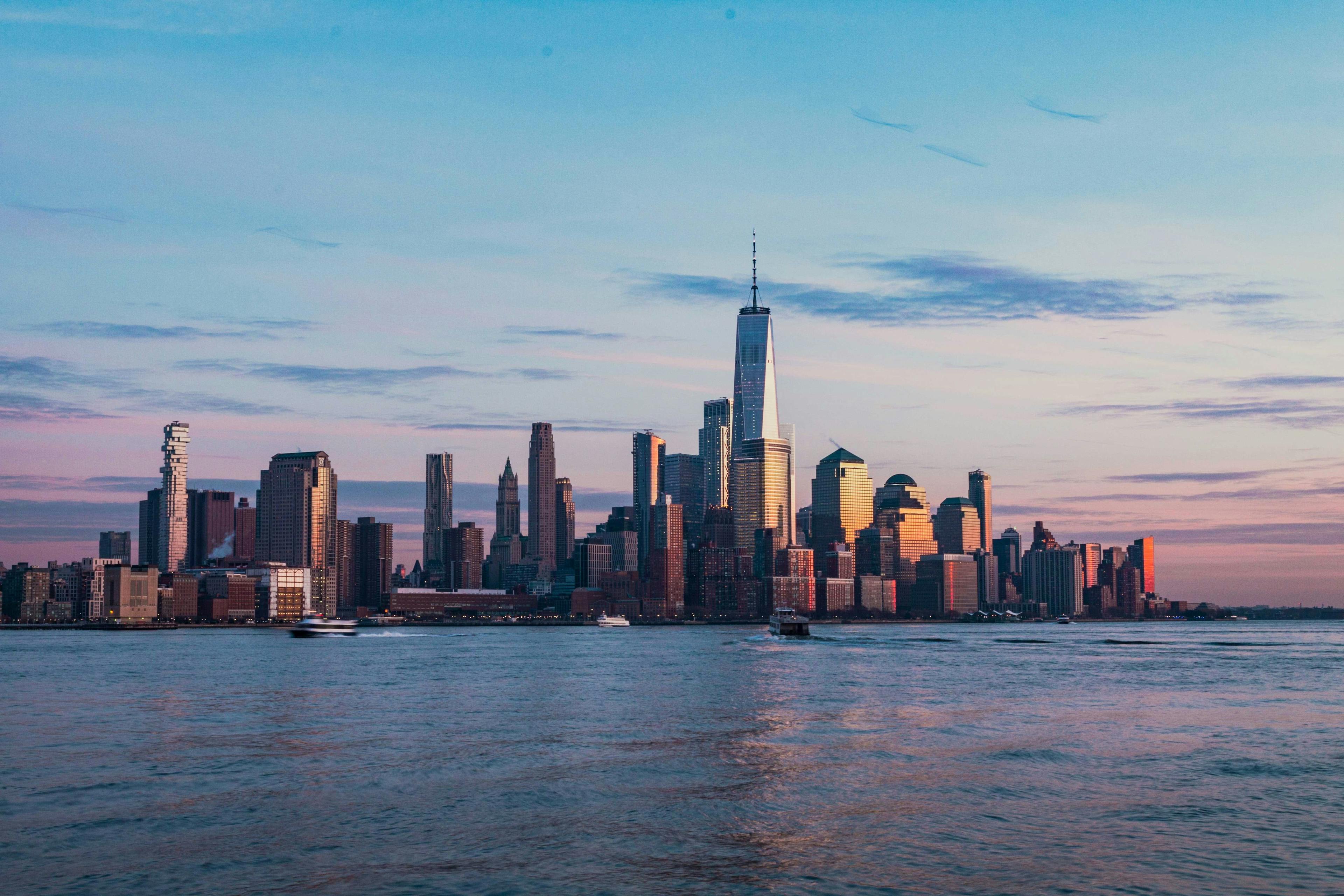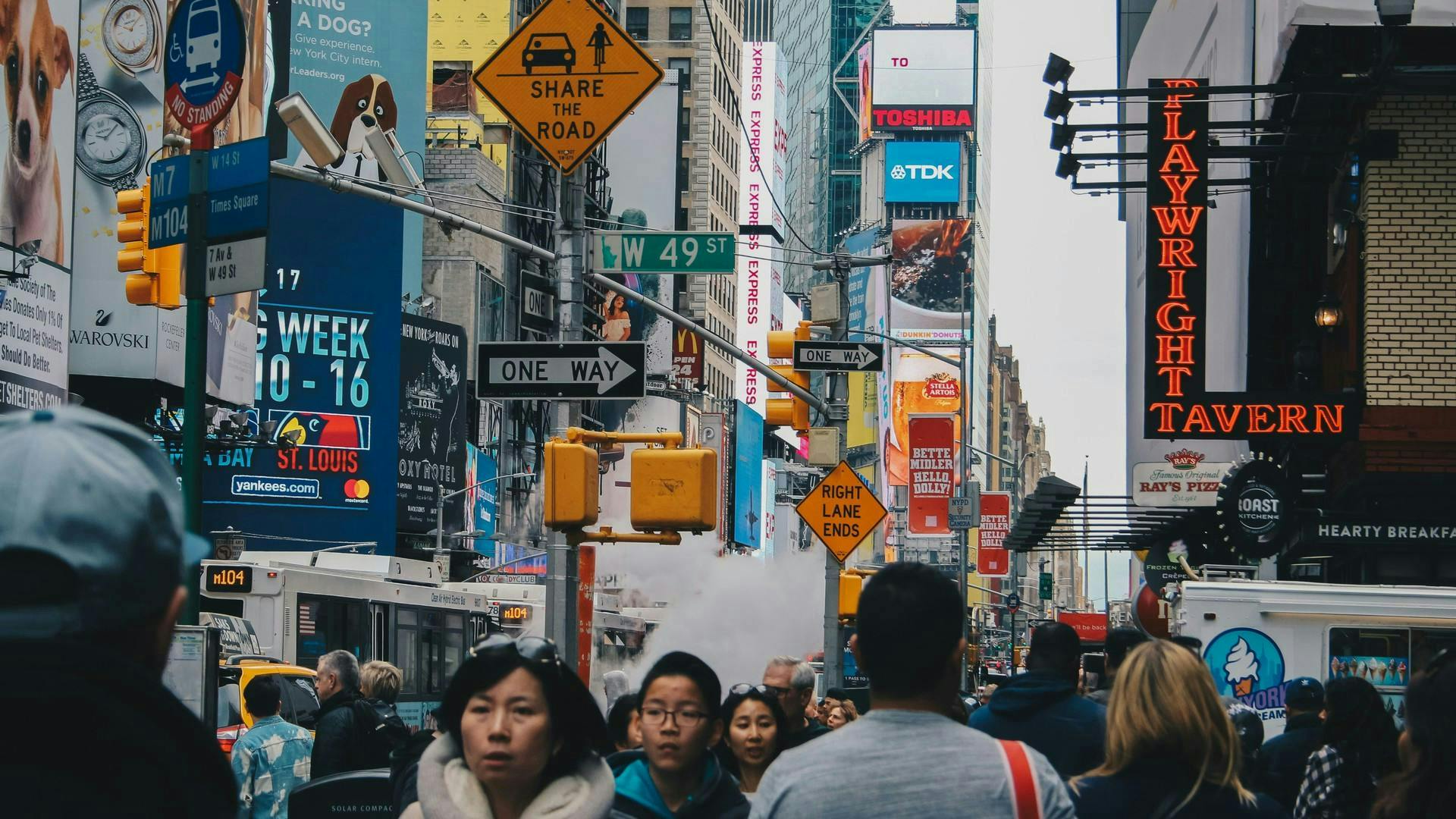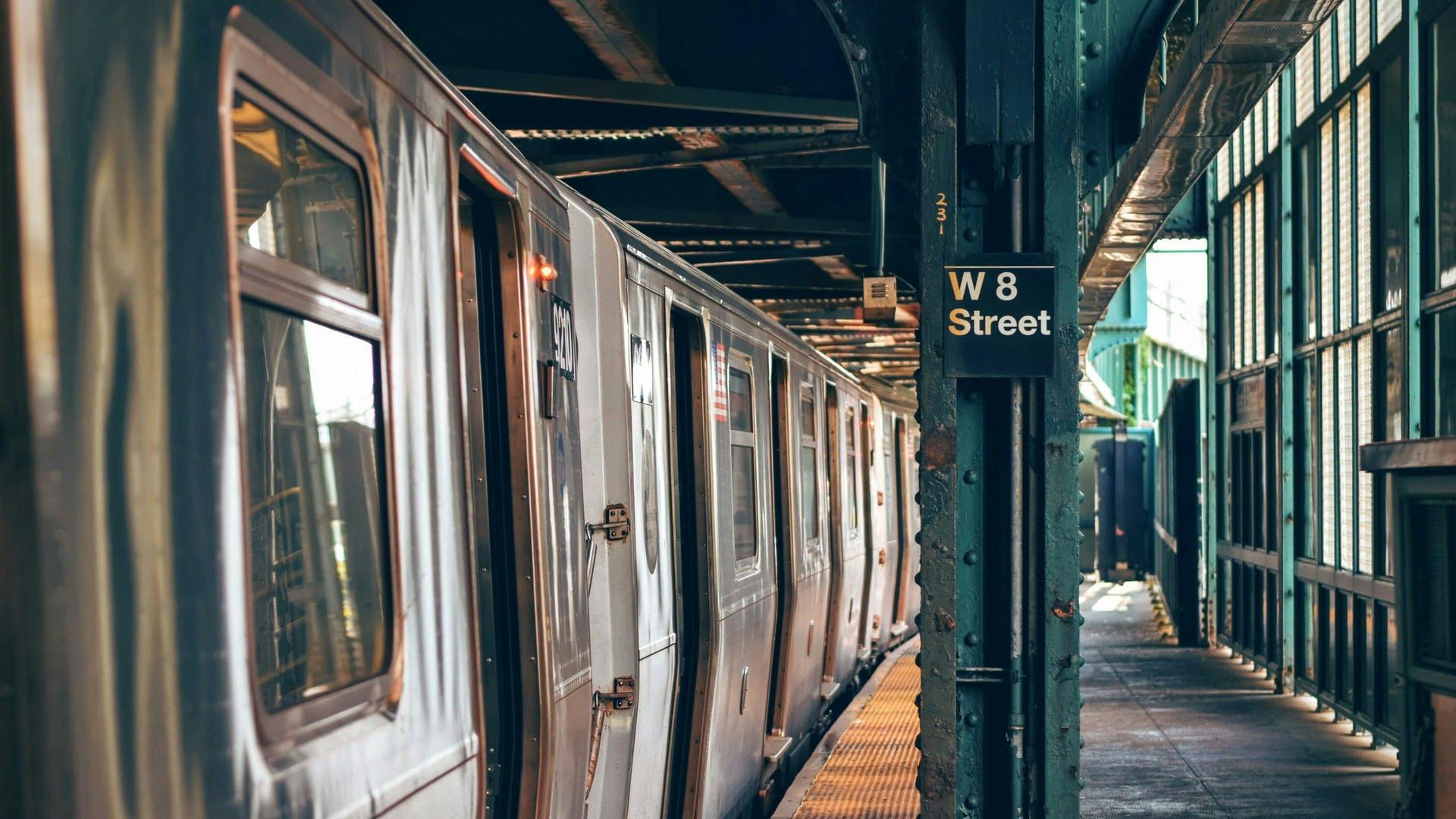A detailed guide to starting a company in NYC
n New York City, life is bursting at the seams, and startups are getting their fair share of the action. Long thought of as the ultimate destination for those seeking to live out the American dream, the biggest city in the US is the perfect haven for entrepreneurs.

Photo: Unsplash/Mike Chavarri
In the 2018 Global Startup Ecosystem Report, NYC came in second place across the world for its startup ecosystem, which is valued at $71 billion. In recent years, the city’s tech sector has experienced nearly 60 percent growth, outpacing other cities in the States as the new technological hub on the block.
Led by a strong sense of individualism, entrepreneurs have flocked to NYC to take full advantage of its thriving ecosystem. The city boasts 7,000 startups as well as abundant opportunities for funding from investors. Startups in the city make use of their local resources, using the momentum of constant competition and the array of industries around them to offer products and services that strive to make an immediate impact.
One area that the city could improve on, however, is its ease of access for foreign entrepreneurs. With the American startup visa enacted by former US President Barack Obama on its way to being axed, much like everywhere else across the country, a specific visa for those seeking to set up a business is difficult to obtain in NYC. Work visas moreover can take as long as six months to process.
Despite the obstacles, NYC’s international tech scene continues to move as fast as the city’s commuters. Innovative, creative types from other parts of the world continue to flood in, eager to have a bite of the Big Apple. If you’re considering starting up in New York, here are some of the most important things to consider.
Visas and work permits
As with lots of other cities around the world, lots of planning is required for your relocation to the concrete jungle. Your first priority will likely be to consider which work visa is suitable for you (note that it’s not possible to come here on a temporary visa and transition to a work visa). There are various options, but many come with long processing times (e.g. up to half a year) and some require that you have a great deal of capital.
The EB-5 visa, for instance, while able to offer residency, was not designed with entrepreneurs in mind and can only apply to a limited number of people. Also known as the ‘Immigrant Investor Program,’ this visa allows you to become a permanent resident of the US if you invest $1 million into an American business – an amount that most startups may struggle to obtain. More information about the different types of visas can be found on the US Department of State website.
A good first step could be to contact your own consulate, which can direct you to free services designed specifically for your home country. The New York City Department of Small Business Services and the New York City Bar provide a similar service. Be prepared as well to possibly have to schedule an appointment with an expert.
The New York City Economic Development Corporation (NYCEDC) and the City University of New York (CUNY) have helped qualified entrepreneurs gain access to uncapped H-1B visas through the city’s IN2NYC program. One of the downsides of the H-1B visa though is that although it lets employers in the States employ workers from abroad in speciality applications, this makes it difficult for the workers to launch a company.
Starting a company
While you don’t necessarily need a visa to register a business in the US, owning a business here does not give you the right to live in the country. Registering your company here will depend on a number of variables, including its structure and location. Usually this involves registering with federal and state agencies.
Companies started by people without a Green Card (permanent resident card) are typically registered as a Limited Liability Company (LLC). This will automatically register you with the Internal Revenue Service (IRS) and will get you a Federal Tax ID number, also known as an Employer Identification Number.
As with lots of other cities around the world, lots of planning is required for your relocation to the concrete jungle.
It’s also necessary to register for a State Tax ID Number and file for Foreign Qualification in any other states your business operates in. You can find more info for this on each state’s .gov website.
Next, you will need to find yourself a Registered Agent (whether it’s you or a professional service) to receive official papers and legal documents on behalf of your company. Some business owners will opt for a registered agent service, rather than fulfilling this role themselves. Note, however, that your registered agent, either person or service, must be in the same state that you are registering in.
Your local consulate and the NYCEDC will have helpful information on incubators and accelerators that can help you navigate these first steps. Be sure to visit New York’s government page for free legal advice and a comprehensive checklist on how to register your company. Upcounsel.com moreover can be helpful for finding an attorney.
Health insurance
Health care in the US is a famously expensive and long-winded process. As all citizens and residents are required to have insurance, whether from their home country or from the US, it’s a good idea to have looked into this in advance. Fortunately, many countries have insurance plans specifically designed for those travelling to the US, so check out your local plans before you pack your bags and head on over.
If you plan to stay long-term, look into what plans the state of New York has to offer. There are mostly only private insurance options available, many of which can only be purchased through the state. Residents of the city can sign up for state health insurance at nystateofhealth.ny.gov.
Keep in mind as well that if your income is below a certain level, you may qualify for a subsidy for your monthly premiums (which start at about $430 a month). Also check zocdoc.com to find healthcare providers.
Taxes
In New York, it’s compulsory to pay city, state and federal taxes. Federal corporate income taxes for C Corporations are due April 18th, and Partnership LLC and S corporation taxes on March 15th.
All incorporated businesses must pay a state-based Franchise Tax (due in March) and the Payroll Tax if you have employees. There is also a Sales Tax, which is remitted quarterly or monthly to the state in which a sale takes place.
While paying your taxes is never fun, the good news is that there are some tax incentives available for startups. There is an opportunity to go tax-free for ten years if you partner with academic organizations, more information of which can be found here. Be sure to check out the Research Development Tax Credit as well, as many startups in New York take advantage of it.
To get an idea of which incentives you might be eligible for, you can use the City’s Incentives Estimator.
Opening a bank account
To open a personal bank account, you’ll need to have your Social Security Number (SSN), two forms of ID and proof of residency at hand.
For a corporate bank account, the documentation will depend upon your corporate structure. Usually, you will need your SSN or your Federal Employee Identification (FEI) number, as well as proof that your company has been registered with the Internal Revenue Service (IRS).
If you don’t have an SSN yet, Santander Bank lets you open a personal account without one. Another option is to open an account through one of the following banks in your home country before arriving in the US: Barclays, HSBC, Citibank, Deutsche Bank, and Credit Suisse.
The people
Now that we’ve gone through the nitty-gritty of the paperwork you’re likely to fill out upon arriving in the Big Apple, let’s move onto chatting about what the people are like.
With nearly half (47 percent) of the city’s technology workers being foreign born, and with immigrants comprising almost half (46 percent) of the city’s workforce as a whole, NYC is one of the most diverse places to live and work in the world.

Photo: Unsplash/Asael Peña
Fueled by an entrepreneurial spirit and a strong sense of individualism, New Yorkers are primed to take on any challenges that the fast-expanding startup sector has to offer. Known for their tough approach to work and play, New Yorkers know how to productively mix business and pleasure. Word on the street is that some offices even have beer on tap.
While commonly misconceived as cold and unfriendly to those less familiar with life in the concrete jungle, NYC’s citizens consider themselves liberal, progressive and open to foreign opportunity.
New York’s diversity inspires a unique energy and a tough sense of inventiveness in its startups. With the inclusion of foreign people in the ecosystem, the city fosters a work culture where a cross-pollination of ideas and perspectives are considered productive for business.
Moreover, the close interrelation of big wig industries such as fashion, media, real estate, art and finance has produced an assortment of talent and creativity that has brought many female entrepreneurs to the forefront. New York has more than 410,000 women-owned businesses, which is more than double the number in any other US city.
Living and working
Rated as the ninth most expensive city in the world, according to cost of living index Expatistan, New York’s high cost of living is a glaring reality for most of its citizens. With astronomically high office and housing rentals, being savvy with spending is your only ticket to staying financially afloat.
For startups seeking office space, the good news is that there is plenty to go around. According to a recent report from investment management company Jones Lang LaSalle, there is roughly 450 million square feet of office space in Manhattan alone, with about 20 million square feet under construction.
Statistics from SquareFoot suggest that the average office space costs around $75 to lease. For entrepreneurs seeking a bargain, there is also more than 150 million square feet of office space to rent, with the average rent costing $60 per square foot.
New York’s high cost of living is a glaring reality for most of its citizens.
For a bedroom in a shared apartment, expect to pay at least $1,000 per month. Monthly rents for a 45 square metre furnished apartment start at around $1,900, statistics from Expatistan show, with average utility bills, comprising electricity, heating and gas, costing around $119.
And do salaries match this? According to payscale.com, the average annual salary in New York is just over $69,000 and $95,000 for software engineers. On whether salaries are proportionate to the costs of living, here’s a statistic to put it into perspective: the average cost for renting out a two-bedroom apartment in Manhattan is $4,314 (July 2018) according to a new residential rental market report by Citi Habitats. That’s more than the entire median monthly income of a typical US worker.
When it comes to renting an apartment, you’ll need to show excellent credit and proof of yearly income; opportunities to sign a year lease for an apartment in NYC are slim. You might also have to pay a hefty broker fee. Most people choose to sublet to avoid these hassles.

Photo: Unsplash/Tim Gouw
As far as good ‘hoods to live in, places with an easy commute to Manhattan could be just the ticket. Check out Williamsburg, Greenpoint, Bushwick, Fort Greene, Crown Heights, Gowanus, Astoria, Long Island City and Jersey City. If possible, avoid setting yourself in a long-term location off the L train, as a portion of its line in Manhattan will be temporarily suspended in April next year for fifteen months for tunnel repairs.
It’s also likely in the outer boroughs where there will be plenty more ways to save money in the largest city in America. Happy hour at your local watering hole may offer $3-5 beers and Trader Joe’s will provide affordable groceries should you wish to cook at home.
While the average lunchtime meal in the business district costs $16, dining out in Brooklyn and Queens is mercifully affordable. You can find a varied range of excellent cuisine that won’t necessarily break the bank in these boroughs as well as others such as Staten Island and the Bronx.
To save on transport costs and also help the environment, riding a bike is a good alternative to a monthly Metro pass, which costs $121.
Read also: How NYC is the place to be for female entrepreneurs
Main photo: Unplash/Patrick Tomasso
*This article was originally published on October 17th, 2018 and updated on December 8th, 2018.

